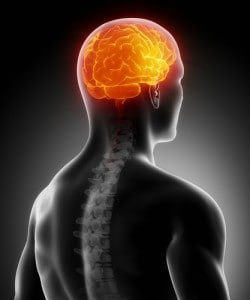What Are the Most Common Physical Symptoms of a Brain Injury?
June 5, 2017
Most Common Physical Symptoms of TBIs
A range of physical symptoms can affect traumatic brain injury (TBI) survivors. These symptoms will vary according to the severity of brain injury and the region of the brain affected.
Being aware of these physical symptoms of TBIs can be essential to knowing when it’s time to:
- Seek medical care for a proper diagnosis and the necessary treatments.
- Consult a lawyer to discuss your options for financial recovery.
Have You or a Loved One Been Diagnosed with a TBI?
Call (713) 352-7975 or Contact Us for a Free Consultation and Get Helpful Legal Advice
Physical Symptoms of Mild to Severe Traumatic Brain Injuries
The following table highlights the most common physical symptoms associated with traumatic brain injuries, based on the severity of the TBI.
|
Severity of TBI |
Physical Symptoms |
|
Mild TBI |
|
|
Moderate to |
|
Here, it’s important to point out that:
- These physical symptoms may take time to present themselves – After an accident or event that caused a TBI, shock, and adrenaline can prevent victims from immediately detecting the physical TBI symptoms they may be experiencing. Additionally, it’s not uncommon for some TBI symptoms to take days (or possibly longer) to arise.
- Cognitive and emotional symptoms can exist alongside physical TBI symptoms – Depression, anxiety, memory problems, and concentration impairments are just a handful of the psychological symptoms TBI survivors may experience in addition to physical symptoms.
Physical TBI Symptoms in Children
Recognizing the physical symptoms of TBIs in any patient can be challenging due to diffuse and sometimes latent nature of these symptoms. When the TBI survivor is an infant or child, it can be far more difficult to detect these physical symptoms because infants and children tend to have limited communication skills.
Consequently, it’s important for parents to be familiar with the physical symptoms of TBIs in children. Most commonly, these symptoms include any combination of the following:
- Fatigue and listlessness
- Vomiting
- Refusal to eat or nurse
- Inconsolable crying or increased irritability
- Disinterest in activities or toys (that were previously a source of joy)
- Balance or walking problems
- Changes in school performance, play activities, and/or sleeping patterns.
What to Do When You Recognize the Physical Symptoms of TBIs
If you recognize the physical symptoms of TBIs in yourself or someone you love, here’s what you should do:
- Seek immediate medical attention – A doctor can run various tests to diagnose (or rule out) a TBI. The sooner a TBI is diagnosed, the sooner treatment can begin – and the better the prognosis will likely be.
- Follow through with all prescribed treatment(s) – Depending on the severity of the TBI (and the age and health of the TBI survivor), treatments can include medication, surgery, physical therapy, speech therapy, and other therapies. Following through with all prescribed treatments can be key to preventing further health complications while improving TBI survivors’ quality of life.
- Contact a lawyer – Once TBI survivors’ health has stabilized, consulting an attorney will be important in finding out more about the legal options for financial recovery. For instance, if the TBI was caused by a car accident or workplace accident, there may be various options for seeking compensation. Although money can’t reverse the impacts of brain injuries, it can be central to covering treatment costs and restoring lives.
Get on the Path to Financial Recovery Now: Contact a Houston Brain Injury Lawyer at the Amaro Law Firm
A Houston brain injury lawyer at the Amaro Law Firm is ready to explain your options for recovery and justice. To set up a free consultation with us and get helpful legal advice regarding your rights and potential claim, call (713) 352-7975 or contact us.
